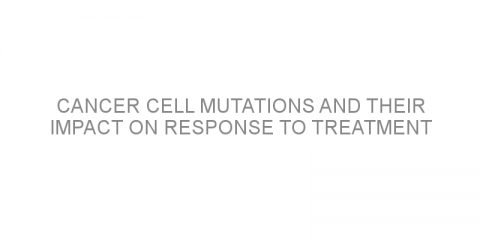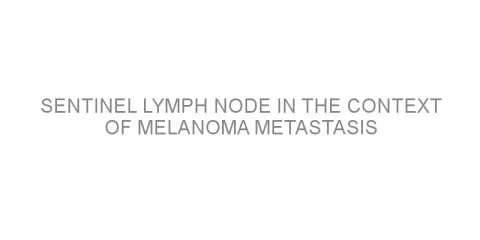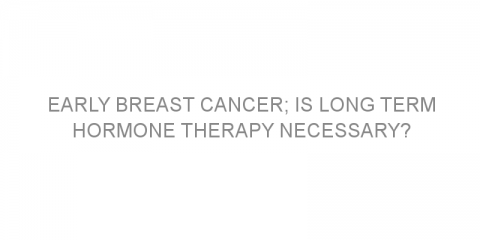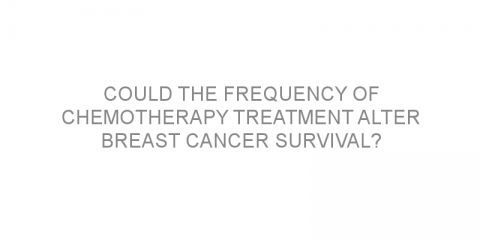In a nutshell The authors compared the effectiveness of robot-assisted and open prostate surgery in prostate cancer patients. Some background Prostate surgery is a common treatment option in prostate cancer. It involves surgically removing the prostate gland. There are numerous types of prostate surgery. Open radical prostate...
Read MoreCurrent stage?-Stage II Posts on Medivizor
Surgery and scar satisfaction in prostate cancer patients
In a nutshell The authors compared scar satisfaction in prostate cancer patients who underwent different surgical procedures. Some background Surgical removal of prostate gland is a common treatment in prostate cancer. There can be different types of surgical techniques. Laparascopic surgery (standard surgery) involves several small...
Read MoreDoes your treatment choice after surgery really matter?
In a nutshell This study looked at the impact of two treatments, chemoradiotherapy and chemotherapy, on the survival of patients with rectal cancer and on the return of their cancer. Some background Normally, prior to surgery to remove rectal cancer, a combination of chemotherapy and radiotherapy is given. Chemotherapy uses a drug or...
Read MoreAdditional treatment with radiotherapy in desmoplastic melanoma
In a nutshell The authors evaluated the effectiveness of radiation therapy after surgery in the management of desmoplastic melanoma (a rare kind of skin cancer). Some background Desmoplastic melanoma is a rare form of skin cancer where the cancer cells are surrounded by fibrous tissues (e.g. tissues that make up ligaments, tendons or...
Read MoreBenefit of watchful waiting in patients with prostate cancer risk
In a nutshell The authors determined the long-term outcomes of active surveillance (watchful waiting) in patients with low risk of prostate cancer. Some background Active surveillance is an option, often used in patients with favorable-risk prostate cancer (Stage I/II, confined to prostate with low risk of spread or...
Read MoreCancer cell mutations and their impact on response to treatment
In a nutshell The authors aimed to determine the significance of cancer cells mutations (a permanent change in the genetic core of the cell) and their impact on a patient’s eligibility for certain therapy drugs. Some background Tumor suppressor genes (such as BRCA-1) protect cells from becoming cancerous through mechanisms that repair damage...
Read MoreKeyhole surgery for colorectal cancer : a high-tech treatment
In a nutshell This study looked at two different types of surgery: single port and multi-port surgery and compared the outcomes of each for colorectal cancer patients. Some background Studies have shown that surgical removal of tumors via a surgical method known as laparoscopic surgery is beneficial. Laparoscopic surgery is sometimes called...
Read MoreSentinel lymph node in the context of melanoma metastasis
In a nutshell The authors determined the risk of disease progression in melanoma patients based on the status of sentinel lymph node (SLN). Some background Classification of skin melanoma based on SLN is the standard procedure used to determine the course of treatment in melanoma patients. SLN is the first lymph node...
Read MoreTherapy before surgery: What are the benefits?
In a nutshell The authors aimed to determine the advantage of neo-adjuvant (treatment given before surgery) therapies in terms of eligibility for certain surgeries. Some background Neo-adjuvant chemotherapy (NAC) is often provided to patients prior to surgery in an attempt to first shrink the tumor. This type of treatment is known to increase the...
Read MoreEarly breast cancer; is long term hormone therapy necessary?
In a nutshell The authors aimed to assess the effectiveness of prolonged hormone therapy to treat women with early breast cancer. Some background Tamoxifen (Nolvadex) is a type of hormone therapy used to treat breast cancer. It attaches to the estrogen receptors (surface structures that respond to estrogen hormone) present on some cancer cells...
Read MoreCould the frequency of chemotherapy treatment alter breast cancer survival?
In a nutshell The authors aimed to determine both the effectiveness and toxicity of a type of chemotherapy treatment for breast cancer. Some background Adjuvant chemotherapy is a course of chemotherapy that patients often receive after their main treatment. Chemotherapy can reduce the risk of cancer recurrence (the cancer returns) and improve...
Read MoreHormone receptors; association with breast cancer outcome
In a nutshell The authors aimed to evaluate the prognostic (disease outlook) effect of the presence of certain hormone receptors on cancer cells. Some background Breast cancer is classified into different subtypes depending on the presence or absence of certain receptors (proteins found on the surface of the cancer cells). Breast cancer...
Read More














